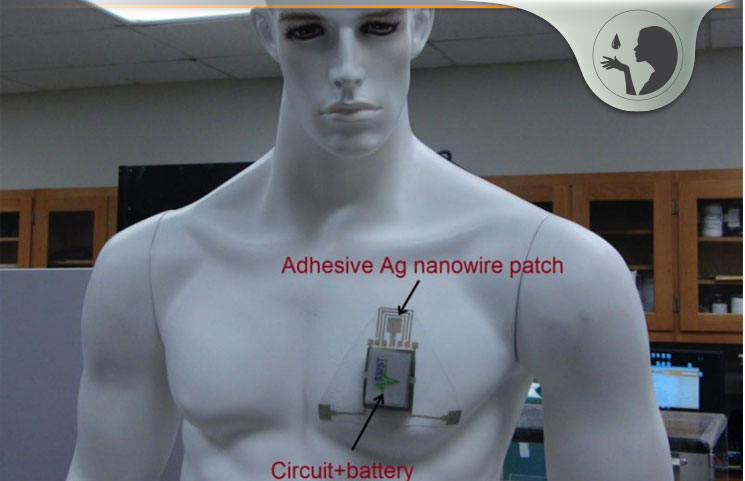Researchers from North Carolina State University have created a wearable skin hydration sensor to track skin hydration. The sensor could be used to spot early warning signs of dehydration before patients experience other health problems.
The wearable, wireless sensor sticks onto your body using an adhesive patch. It’s also lightweight, flexible, and stretchable. Researchers have created multiple types of devices to be worn across the body, including wrist-based wearables and a chest patch.
The sensor in the wearable skin hydration sensor is important because doctors traditionally struggle to measure a patient’s hydration quantitatively. For years, researchers have been trying to create a device that tracks hydration using the surface of the skin.
So far, the best product on the market costs $8,000. The NCSU sensor, on the other hand, costs just $1.
The sensor could be important for firefighters, military personnel, athletes, and other professions. Professions like this are at risk of health problems related to heat stress and dehydration.
A firefighter training in the field on a hot day, for example, may become dehydrated in minutes. That firefighter could wear this dehydration sensor to spot water loss before it leads to more serious health problems.
How the Wearable Skin Hydration Sensor Works
The sensor consists of two electrodes made from elastic polymer composite material. These two electrodes are outfitted with conductive silver “nanowires” that monitor the electrical properties of the skin.
By monitoring the electrical properties of the skin, researchers can use that data to determine how hydrated the skin is. The skin’s electric properties change in a specific way corresponding to hydration, so researchers use this information to make an intelligent guess about skin hydration.
“We have developed technology that allows us to track an individual’s skin hydration in real time,” says Yong Zhu, an associate professor of mechanical and aerospace engineering at NC State and co-corresponding author of the paper.
“Our sensor could be used to protect the health of people working in hot conditions, improve athletic performance and safety, and to track hydration in older adults or in medical patients suffering from various conditions. It can even be used to tell how effective skin moisturizers are for cosmetics.”
For example, a beauty product manufacturer might include a skin sensor in their kit. You apply the sensor, use the company’s moisturizer, then watch how your skin’s hydration raises over time. You have quantifiable evidence showing that your skin is more hydrated.
Wearable Skin Hydration Sensor is Surprisingly Accurate
In the lab, researchers tested their sensors in a range of different environments – including humid environments where the skin might have extra moisture.
However, the performance of the sensor “was not affected by ambient humidity” and “the wearable sensors were just as accurate as a large, expensive, commercially available hydration monitor that operates on similar principles, but utilizes rigid wand-like probes”, explains the official press release from NCSU.
That commercially available monitor, by the way, costs $8,000. Researchers claim their sensors – including the sensor used on the chest-based strap and the wrist monitor – cost $1, while the overall manufacturing cost for the entire device shouldn’t be more than a Fitbit or similar wearable.
The NCSU research was published in the journal Advanced Healthcare Materials under the title “A Wearable Hydration Monitor with Conformal Nanowire Electrodes”.









